[Disclaimer: The best way to get pharmaceutical-grade peptides is through a qualified medical practitioner like an anti-aging doctor or longevity clinic. Consult a healthcare professional before starting any new supplement regimen!]
Peptides are short chains of amino acids that play many essential roles in the human body. From supporting muscle growth and athletic recovery to anti-aging and skin health, peptides offer a variety of benefits.
But where can you get high-quality peptide supplements?
This guide will walk you through everything you need to know about getting and using peptides safely and effectively.
TL;DR – How Do You Get Peptides?
For those of you who want the quick version, here’s a summary of how to get peptides:
- Natural Sources: Consume protein-rich foods like eggs, dairy, meat, fish, and legumes.
- Supplements: Purchase over-the-counter peptide supplements, such as collagen peptides.
- Prescription: Consult a healthcare provider for prescribed peptide medications.
- Topical Products: Use skincare products containing peptides.
- Online Retailers: Buy from reputable online peptide suppliers (for research purposes only).
When sourcing peptides, prioritize safety and quality. Once you get them, ensure you store them properly. If they’re injectables, reconstitute them with bacteriostatic water and inject them subcutaneously with an insulin needle.
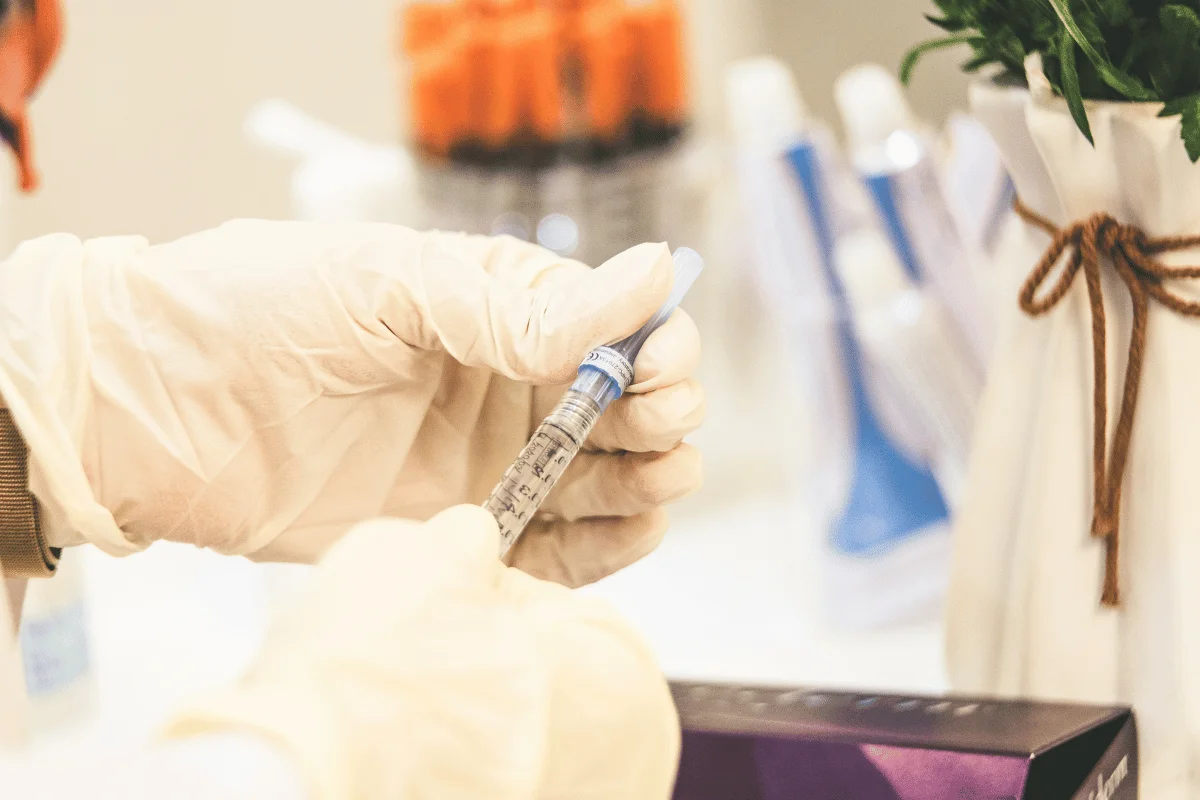
What Are the Benefits of Peptides?
Research shows that bioactive peptides – which are just small pieces of proteins (usually between 3 and 20) – might be really good for your body in lots of ways:
Heart Health
- They could help lower your blood pressure by blocking ACE (an enzyme that can raise blood pressure).
- Some peptides might make your blood flow better and stop clots from forming.
- They can act like antioxidants, protecting your heart cells from damage.
Digestion & Metabolism
- Some peptides might help control your blood sugar by stopping an enzyme called DPP-IV (it usually breaks down hormones that manage blood sugar).
- They could help your body absorb important minerals like calcium and iron better.
- There’s a chance they might help with weight management and diabetes, but we need more research on this.
Boosting Your Immune System
- Some peptides can fight off harmful bacteria (we call this ‘antimicrobial action’).
- They might help control inflammation in your body.
Brain Benefits
- Some peptides might protect your brain cells, which could be helpful for diseases like Parkinson’s.
- Certain peptides work a bit like natural painkillers in your body.
- They might even play a role in controlling your appetite.
Skin & Anti-Aging
- Peptides could help your skin make more collagen, which keeps it firm and bouncy.
- They might help your skin stay hydrated and heal faster.
- Some can even help control skin pigmentation by blocking an enzyme called tyrosinase.
Muscle & Strength
- If you’re working out, certain peptides might help you build muscle.
- They could also help your muscles recover faster after exercise.
Potential Cancer Therapy
- Some scientists are looking at using peptides to deliver cancer drugs more precisely.
- There’s also research on peptides that might help your immune system fight cancer.
Think of peptides like tiny messengers in your body. They tell your cells to conduct restorative processes. Compared to other treatments, they offer targeted effects with few side effects.
Note: Research on most peptides is ongoing; not all have been extensively studied in humans.
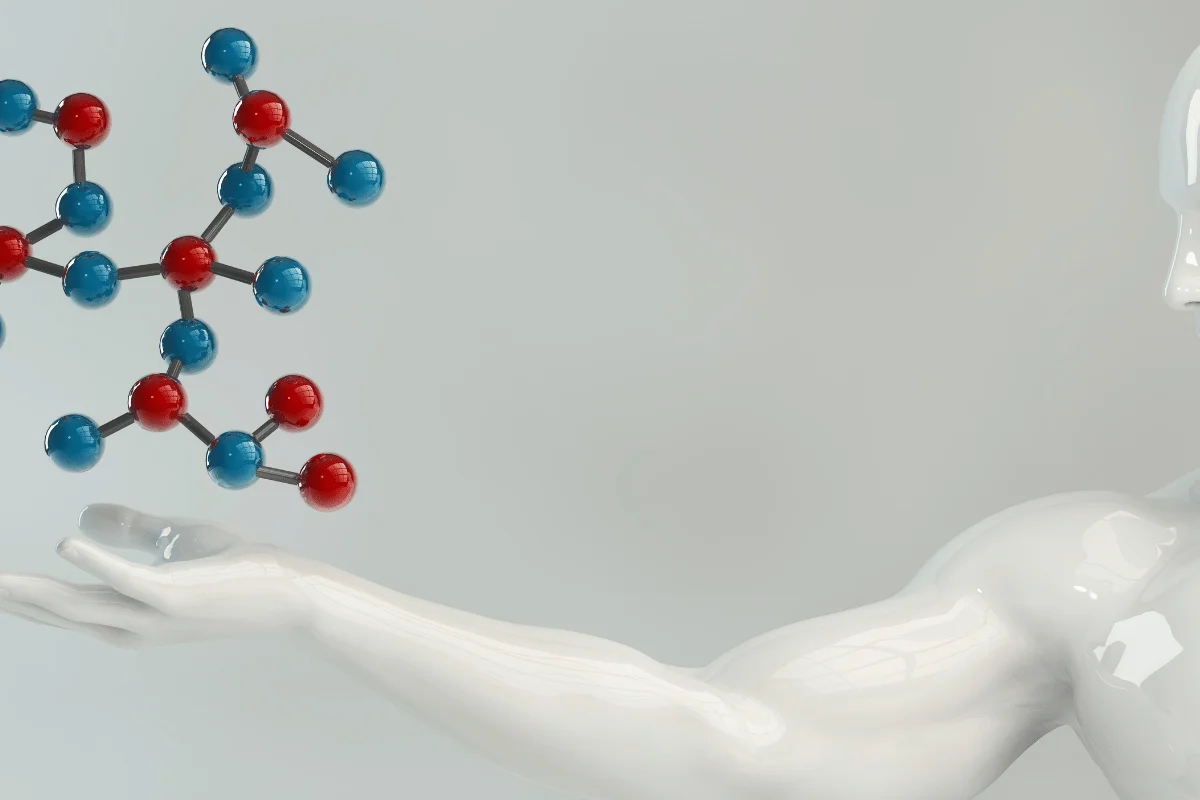
Peptide Applications
There are two main types of peptides used for therapeutic and supplementation purposes:
- Endogenous: Your body naturally makes peptides as hormones, enzymes, and amino acid chains. Scientists call these “endogenous” peptides. Examples are insulin, collagen, glutathione, and oxytocin.
- Exogenous: Peptides are made in labs by enzymatically breaking down food proteins. These are called “exogenous” (synthetic) peptides. Common peptide supplements are collagen, creatine, glutathione, and Cerebrolysin.
Both types of peptides have wide-ranging applications:
- Medications: Over 80 FDA-approved peptide drugs are used for conditions like:
- Diabetes (e.g., insulin, GLP-1 receptor agonists)
- Cardiovascular diseases (e.g. natriuretic peptides)
- Cancer (e.g., luteinizing hormone-releasing hormone analogs)
- Gastrointestinal disorders (e.g., glucagon-like peptide 2 analogs)
- Vaccines: Peptides are being studied as vaccine components, including:
- Cancer vaccines targeting tumor-associated antigens
- Peptide vaccines against viruses like SARS-CoV-2
- Cosmetics: Anti-aging products often contain peptides to improve skin appearance.
- Dietary Supplements: You can buy peptide supplements that claim to build muscle or boost your immune system. But be careful – not all of these are proven to work.
- Medical Tests: Some Radiolabeled peptides can help doctors see tumors in your body more clearly.
Scientists are using some pretty cool tools to find new peptides. They’re using advanced computer programs and a special lab technique (called “phage display”) to design peptides that might work better in our bodies.
They’re even changing the basic “code” of life (called “genetic code expansion”) to make new types of peptides that don’t exist in nature.
A lot of this research is still in the early stages, though. It might be a while before you see some of these new peptide treatments at your doctor’s office.
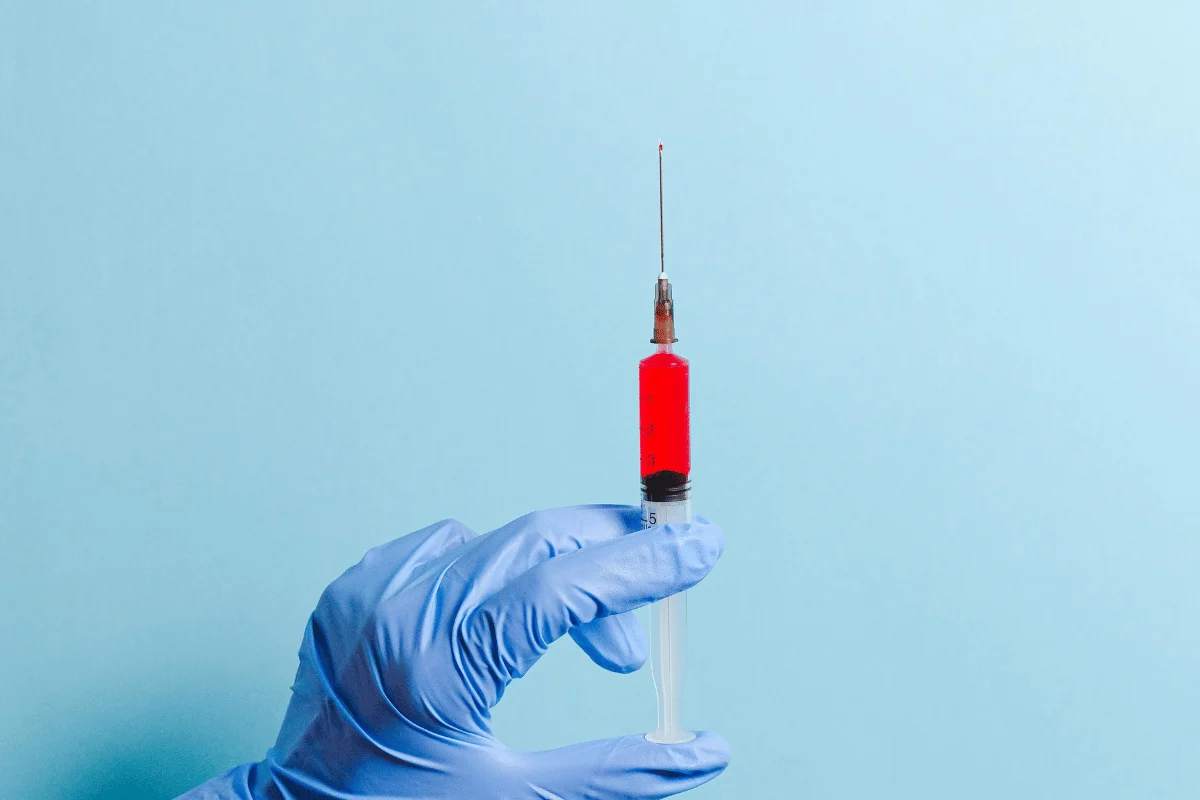
Best Peptide Sources
There are two main ways to get peptides:
1. Natural Peptides
Natural peptides occur in foods or are produced within our bodies.
Here are some excellent natural sources of peptides:
- Eggs: Rich in various peptides, including those that may help lower blood pressure.
- Dairy Products: Milk, cheese, and yogurt contain bioactive peptides.
- Meat: Beef, chicken, and pork are good sources of collagen peptides and other beneficial amino acid chains.
- Fish & Shellfish: Seafood is rich in peptides with anti-inflammatory and antioxidant properties.
- Legumes: Beans, lentils, and soybeans contain peptides that may help lower cholesterol and reduce inflammation.
- Whole Grains: Oats, barley, and wheat contain peptides that could support heart health.
- Fruits and Vegetables: Some plant-based foods, like blueberries, grapes, apples, and potatoes, contain peptides and bioactive antioxidant content that can help regulate blood sugar levels.
Tip: The peptide content in foods can vary, and cooking methods may affect their bioavailability.
2. Synthetic Peptides
Synthetic peptides are laboratory-created molecules that mimic natural peptides or provide specific benefits.
These can be found in:
- Supplements: Many peptide supplements, like hydrolyzed collagen, marine collagen, and collagen peptide powders, are synthetically produced to support skin and joint health.
- Prescription Medications: Some peptide-based drugs are synthetic versions of naturally occurring peptides. Examples are Insulin, Octreotide (brand name Sandostatin), Liraglutide (brand name Victoza), and Teriparatide (brand name Forteo).
- Skincare Products: Many anti-aging creams and serums contain synthetic peptides, such as Argireline, GHK-Cu, Matrixyl, and Syn-Ake.
- Research Chemicals: Synthetic peptides are used in scientific research and development. The most common substances are BPC-157, TB-500 (Thymosin Beta-4), CJC-1295, GHRP-6, etc.
Note: Prescription medications are approved for human use under medical supervision; research chemicals are not intended for human consumption and should only be used in controlled laboratory settings.

How to Get Peptides
If you are interested in advanced peptide therapy, follow these steps to get the right peptides:
- Assess Your Needs: Why do you want to use peptides, and what specific benefits are you seeking?
- Consult a Healthcare Professional: Always consult a healthcare professional before using any new medication or supplement. This includes peptides, too!
- Choose Your Source:
- For Natural Peptides: Focus on adding peptide-rich foods to your diet.
- For Supplements: Research reputable brands and choose products that align with your goals.
- For Prescription Peptides: Work with your healthcare provider to decide if a peptide medication is right for you.
- Check Legality & Regulations: Ensure that the peptides you’re interested in are legal and approved for use in your country. If you’re an athlete or involved in professional sports, check section 2.2 under the WADA prohibited list before using.
- Purchase from Reputable Sources: Choose trusted suppliers when buying supplements or prescription peptides.
- Follow Proper Storage & Usage Instructions: Peptides can be delicate molecules, so proper handling is a must for maintaining their effectiveness.
- Monitor Your Progress: Keep track of the improvements or even adverse reactions you notice while using peptides.
- Start with Lower Doses: Work slowly to the optimal level based on your response and blood work.
- Use Peptides Consistently: Use them for at least 2-3 months for best results. Cycle off periodically and repeat as needed to sustain benefits.
- Adjust As Needed: Work with your healthcare provider to adjust your peptide regimen based on your results and any side effects.
The process of sourcing and applying peptides can vary depending on the specific type you’re after and your intended use.

5 Best Places to Buy Peptides
If looking to purchase peptides online from a supplier that follows pharmaceutical standards, these brands lead the industry:
- BioLongevity Labs: We offer research peptides, bioregulators, and supplements focusing on quality and scientific advancement. Our products are meticulously crafted to exceed 99% purity, and we pride ourselves on same-day shipping and dedicated customer service.
- Core Peptides: Provides quality control, testing, shipping, and a selection of peptides and accessories.
- Biosynth: A lab supplier with a large inventory, independent verification, and processing options.
- Swiss Chems: Offers peptides that are available in kits for various user levels.
- Peptide Sciences: Specializes in creating purified peptides for research applications since 2015.
When buying peptides online, vet suppliers carefully and never compromise on quality.
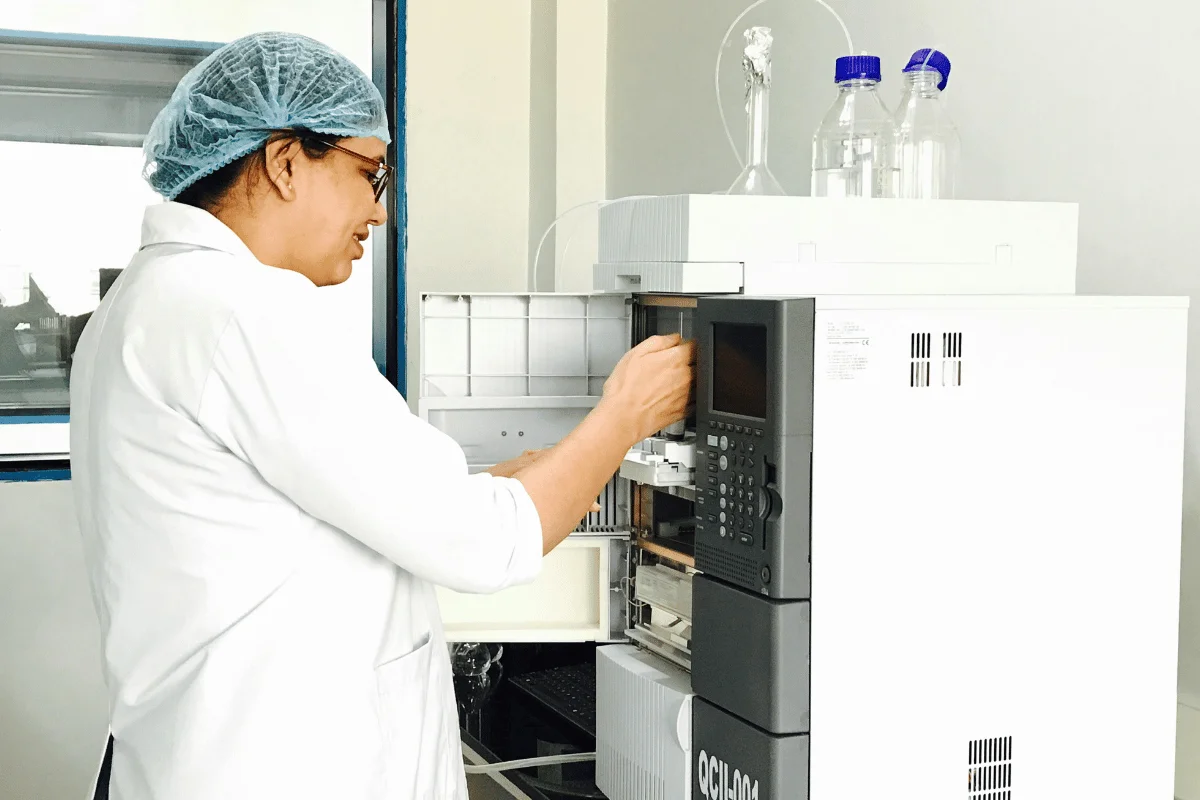
Safety and Quality Assurance Tips
Safety should be your top priority when sourcing peptides.
Here are some tips to ensure you’re getting high-quality, safe peptides:
- Look for Third-Party Testing: Reputable companies often have their products tested by independent labs for purity and potency.
- Check for Certifications: Look for certifications from organizations like NSF International (National Sanitation Foundation) or USP (United States Pharmacopeia).
- Read Reviews: Check customer reviews and testimonials, but be wary of overly positive or negative reviews.
- Consult Experts: Talk to healthcare professionals or peptide experts about the best sources and products.
- Verify the Source: Ensure you buy from a legitimate, authorized retailer or pharmacy.
- Check the Packaging: Look for proper labeling, including ingredient lists, dosage information, and expiration dates.
- Be Wary of Too-Good-to-Be-True Claims: If a product promises miraculous results, it’s probably too good to be true.
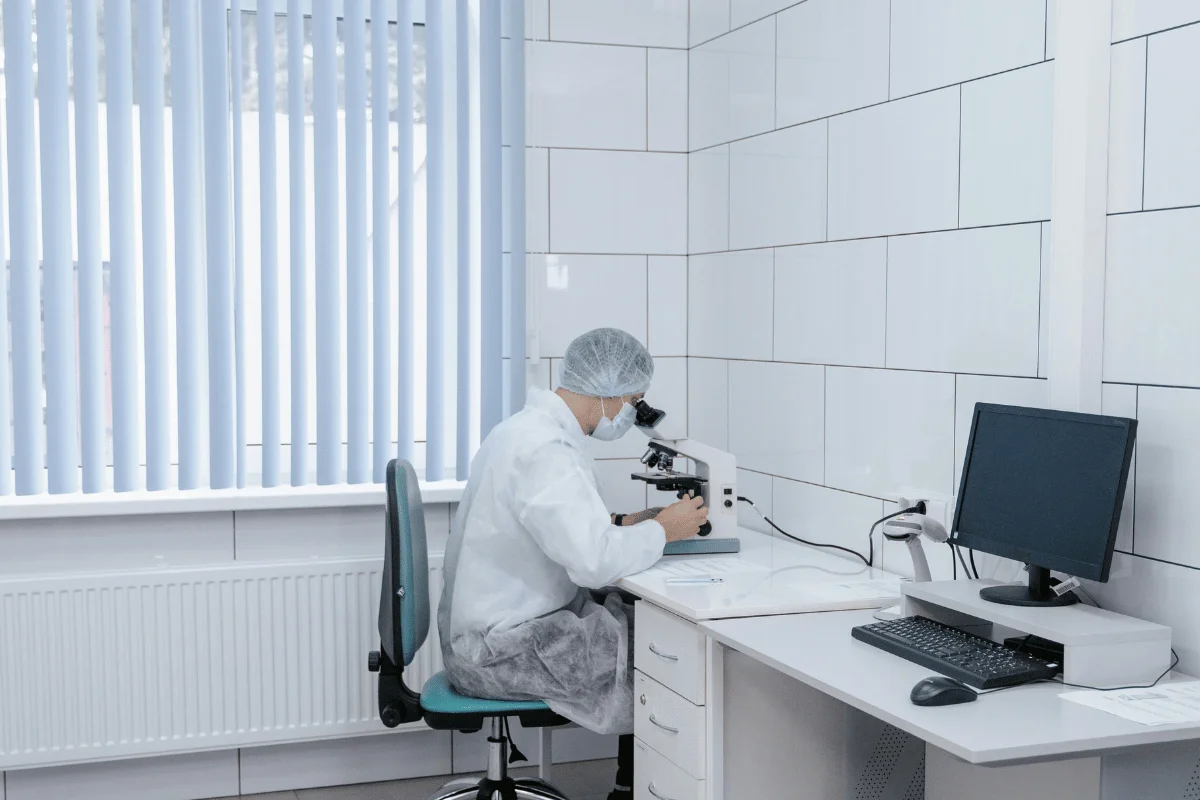
Frequently Asked Questions (FAQs)
Let’s address some common questions about obtaining and using peptides:
How Do I Know if a Peptide is High Quality?
Reputable peptide companies provide purity testing via high-performance liquid chromatography, mass spectrometry assay, or other independent lab analysis.
Sterilized lab conditions, single-use vials, and bacteriostatic water also indicate quality manufacturing.
Can Peptides Be Combined with Other Supplements?
Yes, peptides often synergize with supplements like vitamins, minerals, amino acids, and botanical extracts. However, always consult your practitioner before stacking peptides with other compounds.
Is Collagen Peptide a Good Source of Protein?
Collagen peptides can be a good source of protein, particularly for skin, hair, and joint health. However:
- They’re not a complete protein source, as they lack some essential amino acids.
- They’re best used with other protein sources for a balanced diet.
- The effectiveness can vary depending on the individual and the specific product.
Where Can You Get Peptides for Weight Loss?
Some peptides, such as CJC-1295/Ipamorelin and GHRP hormonal peptides, aid fat loss and metabolism.
You’d need to get them prescribed and administered under the guidance of a professional. Banned weight loss peptides like Clenbuterol carry significant health risks.
Can You Get Peptides Over the Counter?
No, peptides are unavailable over the counter (except collagen peptides). Suppliers sell peptides labeled “for research only” to avoid FDA regulations. Prescribed peptides tailored to your needs through a qualified healthcare provider offer the safest option.
Note: Availability can vary by country due to different regulations
How Long Does it Take to See Results from Peptides?
It depends on:
- The specific peptide being used
- Individual factors (age, health status, etc.)
- Dosage and frequency of use
- The desired outcome
It can take a few weeks to several months to see noticeable results. Consistency is key.
Conclusion – Where to Get Peptides
This article has covered a lot of ground. Peptides are amazing — they can help with everything from smoother skin to stronger muscles.
But remember, it’s super important to be smart and safe when considering using peptides. Always do your homework and chat with a doctor if you need clarification.
And if you’re hungry for more peptide knowledge, check out All About Peptides. We offer cutting-edge information on peptide therapy backed by scientific research and expert insights.
We’re committed to educating you to make informed decisions about your health using peptides.
You can join us and hundreds of other health-loving subscribers in our newsletter. We can’t wait to geek out about health with you!